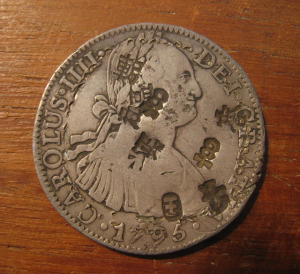Presented By: Confucius Institute at the University of Michigan
The Literary Adventures of Silver in Early Modern China
Speaker: Sarah E. Kile, Assistant Professor of Asian Studies, U-M

During the Ming dynasty (1368-1644), silver circulated alongside government-issued copper coins and paper bills, but by the middle of the sixteenth century people had begun to lose faith in Ming currency and the greater part of the Chinese economy converted to silver. China produced a negligible quantity of silver, so it had to be imported in exchange for boatloads of Chinese silks and porcelain. In its double role as both “money” – a readily accepted medium of exchange – and “commodity” – a thing containing its own value that fluctuated based on demand – silver circulated at a dizzying pace in China.
Popular anecdotes and fictional narratives from seventeenth-century China reveal some of the ways silver and the objects whose value it represented and contained were imagined and depicted. These accounts show that silver’s status as currency in China, combined with its nearly universal purchasing power, generated considerable anxiety about social and familial relations and the constitution of moral action. At the same time, the increasing speed of silver’s circulation gave rise to uneven commoditization of things, which led people to revise their assumptions about the place of the Ming empire in the world. In this talk, Professor Kile will explore some written accounts of silver and circulating things to show some of the ways people in the Ming empire conceived of value during this transitional period and how they reevaluated the position of “China” in a changing world.
Popular anecdotes and fictional narratives from seventeenth-century China reveal some of the ways silver and the objects whose value it represented and contained were imagined and depicted. These accounts show that silver’s status as currency in China, combined with its nearly universal purchasing power, generated considerable anxiety about social and familial relations and the constitution of moral action. At the same time, the increasing speed of silver’s circulation gave rise to uneven commoditization of things, which led people to revise their assumptions about the place of the Ming empire in the world. In this talk, Professor Kile will explore some written accounts of silver and circulating things to show some of the ways people in the Ming empire conceived of value during this transitional period and how they reevaluated the position of “China” in a changing world.